- About Lavinia
- Advanced Search
- Blog
- Compare Listings
- Contact
- Dashboard – Add Agent
- Dashboard – Add Property
- Dashboard – Agent List
- Dashboard – Favorite Properties
- Dashboard – Inbox
- Dashboard – Invoices
- Dashboard – Main
- Dashboard – Profile Page
- Dashboard – Property List
- Dashboard – Saved Searches
- Dashboard – Search Results
- Dashboard -Analytics
- Developers
- home
- List Property
- Off-Plan
- Privacy Policy
- Property Submit – Front
- Rent
- Sale
- Sobha Solis
- Terms of Use
- test 5
- test search
- tst
- WpEstate CRM
- WpEstate CRM Contacts
- WpEstate CRM Leads / Inquires
Understanding Mortgage Options for First-Time Buyers in Dubai

Key Takeaways
- Dubai offers various mortgage options with starting rates at approximately 4.99%
- First-time buyers typically need a minimum down payment of 20% for expatriates and 15% for UAE nationals
- Mortgage terms in Dubai generally range from 5 to 25 years
- Most banks offer both fixed and variable interest rate options
- Payment plans for new developments can offer alternatives to traditional mortgages
- Pre-approval is essential before beginning your property search
Introduction to Dubai's Mortgage Landscape
Buying your first home in Dubai is a big step. Understanding how mortgages work here is really important before you start looking at properties. The Dubai mortgage market has changed a lot over the years, giving buyers more choices based on what they need.
Whether you're looking at ready-to-move-in homes in places like Dubai Marina or thinking about off-plan properties with special payment plans, knowing your mortgage options will help you make a smart investment. This guide will help you understand the basics of getting a mortgage in Dubai.
By the end of this article, you'll know about the types of mortgages available, what you need to qualify, what documents you'll need, and tips for getting the best mortgage deal. This will help you feel more confident when you're ready to buy a property in Dubai.
Basic Mortgage Concepts in Dubai
Before we look at specific mortgage options, it's helpful to understand some basic concepts about mortgages in Dubai. The UAE Central Bank sets rules that affect what terms and conditions banks can offer to buyers. These regulations are designed to maintain stability in the real estate market and protect both lenders and borrowers from excessive financial risk.
Down Payment Requirements
In Dubai, how much money you need to put down upfront depends on whether you're a UAE citizen and how much the property costs. These requirements are strictly regulated by the UAE Central Bank to ensure responsible lending practices throughout the emirate:
- UAE Nationals: Need to pay at least 15% upfront for properties worth up to AED 5 million, which is lower than the requirement for expatriates to encourage local ownership
- Expatriates: Need to pay at least 20% upfront for first properties worth up to AED 5 million, as they are considered slightly higher risk by lending institutions
- For properties worth more than AED 5 million, you need to pay an extra 5% upfront regardless of nationality, reflecting the higher risk associated with luxury properties
- Second and later properties require larger down payments, typically starting at 30% for expatriates and 25% for UAE nationals, as these are considered investment rather than primary residence purchases
Loan-to-Value (LTV) Ratio
The loan-to-value ratio shows what percentage of the property value a bank will finance. In Dubai, expatriates can usually get financing for up to 80% of their first property's value. This means you need to provide the remaining 20% as a down payment. The LTV ratio is a critical factor in mortgage approval and directly impacts the interest rate you'll be offered. Generally, a lower LTV ratio (meaning a larger down payment) can result in more favorable interest rates as it represents lower risk to the lender.
Mortgage Terms
Mortgage terms in Dubai typically range from 5 to 25 years. How old you are can affect the maximum term available to you. For expatriates, the maximum age at loan maturity is usually 65 years, while for UAE nationals it's 70 years. This age restriction ensures that borrowers are likely to complete their mortgage payments before retirement when income typically decreases. Longer terms mean lower monthly payments but higher total interest paid over the life of the loan, so it's important to balance monthly affordability with long-term cost.
Interest Rates
Dubai mortgage interest rates can be either fixed or variable, each with distinct advantages and potential drawbacks depending on your financial situation and risk tolerance:
- Fixed rates: Stay the same for a specific period (usually 1-5 years), making your payments predictable and protecting you from market fluctuations. After the fixed period ends, the rate typically converts to a variable rate based on current market conditions.
- Variable rates: Change based on the Emirates Interbank Offered Rate (EIBOR), possibly offering lower initial rates but with less certainty. These rates are reviewed and adjusted periodically (monthly, quarterly, or annually) depending on the terms of your mortgage agreement.
If you need help with the legal aspects of buying property, our conveyancing services can make the process easier once you've secured your mortgage. Professional conveyancing ensures all legal requirements are met and that your property transfer proceeds smoothly without unexpected complications.
Types of Mortgages Available in Dubai
Dubai offers several types of mortgage products to fit different buyer needs. Understanding these options is important for making a good decision about your property financing. The mortgage market in Dubai has evolved significantly in recent years, with lenders becoming more competitive and offering increasingly diverse products to attract buyers in this dynamic real estate market.
Conventional Mortgages
Conventional mortgages are standard home loans offered by banks and financial institutions. These typically require a minimum down payment of 20% for expatriates and 15% for UAE nationals. The interest rates can be fixed or variable, and the loan terms generally range from 5 to 25 years. These mortgages are the most common type in Dubai and are suitable for buyers with stable income and good credit history. They generally follow standard underwriting procedures and conform to the UAE Central Bank regulations regarding LTV ratios and debt burden ratios.
Fixed-Rate Mortgages
Fixed-rate mortgages keep the same interest rate for a set period, typically 1-5 years, after which they may change to a variable rate. This option makes it easier to budget for your monthly expenses because your payments stay the same. However, fixed rates are usually a bit higher than initial variable rates. Fixed-rate mortgages are particularly beneficial during periods of expected interest rate increases or for buyers who prefer payment stability and predictability in their financial planning. Some lenders in Dubai offer extended fixed-rate periods of up to 10 years, though these typically come with slightly higher interest rates to compensate for the lender's increased risk.
Variable-Rate Mortgages
Variable-rate mortgages have interest rates that change based on the EIBOR. These mortgages often start with lower interest rates compared to fixed-rate options, but the payments can go up if the EIBOR rises. This option might be good for buyers who think interest rates will go down or who plan to sell the property before rates potentially go up. Variable rates in Dubai are typically reviewed and adjusted quarterly, though some lenders offer monthly or semi-annual adjustments. Some variable-rate mortgages also offer caps on how much the rate can increase in a single adjustment period or over the life of the loan, providing some protection against dramatic payment increases.
For more detailed information on different mortgage products, check out our comprehensive guide to mortgages in Dubai.
Developer Payment Plans as Mortgage Alternatives
For first-time buyers in Dubai, developer payment plans can be an attractive alternative to traditional mortgages, especially for off-plan properties. These plans typically require a smaller initial investment and allow you to spread the payments over the construction period. Developer payment plans have become increasingly competitive in recent years as developers seek to attract buyers in a market with numerous new projects launching regularly. These plans can be particularly advantageous for those who may not qualify for traditional bank financing due to employment history or other factors.
Post-Handover Payment Plans
Many developers in Dubai offer post-handover payment plans, where you can pay a percentage of the property value after receiving the keys. For example, you might pay 60% during construction and the remaining 40% over 2-3 years after handover. This can significantly reduce the initial financial burden. These plans effectively function as interest-free loans from the developer, making them particularly attractive in a high-interest-rate environment. Some developers even offer extended post-handover payment periods of up to 5-7 years for premium developments, creating an appealing alternative to traditional bank financing.
At Samana Parkville, located in Dubai Land Residential Community, buyers can take advantage of flexible payment plans with handover expected in 2028. This development offers luxurious homes with various amenities including private pools and smart home technology, with prices starting from USD 190K. The extended construction timeline allows for smaller, more manageable payments spread over a longer period, making homeownership accessible to a broader range of buyers.
80/20 Payment Plans
Some developments, like Venice by DAMAC Lagoons, offer 80/20 payment plans where you pay 80% during construction and the remaining 20% upon completion. This type of plan can be particularly beneficial for buyers who don't qualify for a mortgage or prefer not to take on traditional bank financing. The major advantage is that you can secure the property with a manageable payment schedule without going through the rigorous mortgage application process. Additionally, by the time the final payment is due, the property may have appreciated in value, potentially allowing you to finance the remaining 20% with a smaller loan-to-value ratio.
Benefits of Developer Payment Plans
- Lower initial investment compared to traditional mortgages, often requiring just 10-20% to secure the property
- No need for mortgage pre-approval or extensive documentation, making the purchase process faster and more straightforward
- No interest charges during the payment period, potentially saving thousands in interest compared to conventional mortgages
- Flexibility to sell before completion and potentially make a profit if property values increase during the construction period
- Option to seek mortgage financing for the final payment if needed, giving you time to improve your financial position before applying
- Protection against interest rate increases during the construction period, providing financial predictability
- Potential to negotiate customized payment schedules with some developers, especially for bulk purchases
You might also want to explore Savanna Residences, a luxury waterfront development by Emaar at Creek Harbour, offering various amenities with a handover date in 2026 and expected price increases of 30-40%. This prestigious development combines Emaar's renowned quality with an attractive payment plan structure, making it a compelling option for both end-users and investors seeking capital appreciation in one of Dubai's most promising new districts.
Eligibility Requirements for Dubai Mortgages
Understanding the eligibility criteria for mortgages in Dubai is essential for first-time buyers. Banks and financial institutions look at several factors before approving a mortgage application. These criteria are designed to assess your financial stability and ability to repay the loan over its full term. While requirements vary slightly between lenders, most follow similar guidelines established by the UAE Central Bank to ensure responsible lending practices.
Income Requirements
Most lenders in Dubai require a minimum monthly income of AED 10,000-15,000 for expatriates. Your income directly affects how much you can borrow, as banks typically limit the monthly mortgage payment to 50% of your monthly income (debt-to-income ratio). This debt burden ratio is strictly enforced to prevent over-leveraging and ensure borrowers can comfortably manage their mortgage payments alongside other financial obligations. Some premium lenders may offer more favorable terms for high-income professionals in certain sectors such as medicine, law, or engineering, recognizing the stability and growth potential of these career paths.
Employment Stability
Lenders typically require:
- Minimum 6 months to 1 year of employment with your current employer, with some premium lenders requiring up to 2 years of continuous employment
- Confirmation of employment or business ownership through official documentation such as labor contracts or trade licenses
- Proof of consistent income through bank statements showing regular salary deposits or business revenue
- Employment in a company or sector considered stable by the lender, with some banks maintaining internal lists of approved employers
- For self-employed applicants, a minimum of 2-3 years of operational history with audited financial statements
Age Requirements
- Minimum age: 21 years, as this is the legal age of majority in the UAE for financial contracts
- Maximum age at loan maturity: 65 years for expatriates, 70 years for UAE nationals, reflecting typical retirement ages
- Some banks offer extended age limits for high-net-worth individuals or those with significant investment portfolios
- Age affects the maximum loan term available, with older applicants typically limited to shorter mortgage durations
Residency Status
- UAE nationals: Must have valid Emirates ID and may receive preferential terms including higher LTV ratios
- Expatriates: Must have valid residency visa with at least 6 months validity and demonstrable ties to the UAE
- Some banks offer non-resident mortgages for certain nationalities, though these typically require larger down payments of 30-40%
- GCC nationals often receive terms similar to UAE nationals due to regional agreements
If you're interested in properties in popular areas, you might want to explore Dubai Marina properties, which offer dynamic living options with luxury apartments and a vibrant lifestyle. This established community remains one of Dubai's most sought-after residential areas, combining waterfront living with excellent amenities and strong rental yields for investors.
Documentation Required for Mortgage Applications
Preparing the right documentation in advance can make your mortgage application process smoother. Here's a list of documents typically required by Dubai lenders. Having these documents organized and ready before approaching lenders can significantly expedite your application and demonstrate your seriousness as a buyer. Most banks in Dubai have streamlined their documentation requirements in recent years, but the process still requires thorough preparation.
Personal Documents
- Passport copy with valid residency visa (for expatriates), including all pages with visa stamps and entry/exit records
- Emirates ID (front and back), which serves as your primary identification in the UAE
- Labor card or employment visa showing your occupation and employer details
- Recent passport-sized photographs (typically 2-4) meeting UAE specification requirements
- Marriage certificate (if applicable), particularly important for joint applications or if your spouse will be a co-signer
- Utility bill or other proof of current residence address in the UAE
Income Documentation
When applying for a mortgage in Dubai, you'll need to provide several documents that prove your income and financial stability. Banks want to see that you have a steady, reliable income that will allow you to make your mortgage payments on time. For most people working as employees, you'll need to show six months of bank statements that clearly show your salary being deposited regularly. Your employer will also need to provide a salary certificate that states your position, how long you've worked there, and exactly how much you earn including any bonuses or allowances.
If you're self-employed, the process is a bit more involved. You'll need to provide your trade license and company registration documents, along with financial statements that have been checked by an accountant. Most banks want to see that your business has been operating successfully for at least 2-3 years. They'll also look at your personal and business bank statements to verify your income claims and to check the overall health of your business finances.
Property Documents
When you've found a property you want to buy, you'll need several documents related to that specific property for your mortgage application. The most important is the sale and purchase agreement (SPA) that you and the seller both sign. This document outlines all the terms of the sale including the price, payment schedule, and any conditions that need to be met.
For existing properties, you'll need a copy of the title deed, which proves who currently owns the property. For properties that are still being built (off-plan), you'll need the Oqood certificate instead, which is a pre-registration document. The bank will also arrange for a professional valuation of the property to make sure it's worth what you're paying for it. This valuation helps the bank determine how much they're willing to lend you based on the property's actual market value rather than just the asking price.
You might also want to consider Binghatti Point, a ready development in Dubai Silicon Oasis offering 1-2 bedroom apartments. This development by the renowned Binghatti Developers combines modern architecture with practical living spaces, making it an excellent option for first-time buyers looking for immediate move-in properties in an established community with strong infrastructure.
The Mortgage Application Process in Dubai
Understanding the mortgage application process can help first-time buyers approach this crucial step with confidence. Here's a step-by-step guide to securing a mortgage in Dubai. The entire process typically takes between 2-4 weeks from application to approval, though this timeline can vary depending on the lender, property type, and your personal circumstances. Being prepared and responsive throughout the process can help minimize delays.
Step 1: Pre-Qualification
Before you start house hunting, it's a good idea to get pre-qualified for a mortgage. This involves a preliminary assessment by the lender to determine how much you might be eligible to borrow based on your income, expenses, and financial history. During pre-qualification, the lender will review your basic financial information without conducting a full credit check or requiring extensive documentation. This step gives you a realistic budget for your property search and demonstrates to sellers that you're a serious buyer. Many real estate agents in Dubai now request pre-qualification letters before showing premium properties to ensure they're working with qualified buyers.
Step 2: Property Selection
Once you have a clear idea of your budget, you can start searching for properties that match your requirements. At Lavinia Properties, we can help you find properties that match your budget and preferences, whether you're looking for apartments in Dubai Marina or villas in other prestigious communities. When selecting a property, consider not just the current price but also factors that will affect its long-term value, such as location, building quality, amenities, and community development plans. It's also important to verify that the property is eligible for mortgage financing, as some developments or property types may have restrictions imposed by certain lenders.
Step 3: Mortgage Application
After selecting a property, you'll need to submit a formal mortgage application to your chosen lender. This involves completing the application form and submitting all required documentation as mentioned in the previous section. The application will require detailed information about your income, assets, liabilities, and employment history. Most banks in Dubai now offer online application systems that allow you to upload documents digitally, though you may still need to visit the branch to sign the final paperwork. Many borrowers choose to work with mortgage brokers who can submit applications to multiple lenders simultaneously, increasing your chances of approval and helping you secure the best possible terms.
Step 4: Property Valuation
The lender will arrange for a property valuation to determine its market value. This is an important step as the loan amount is calculated based on the property's valuation rather than the purchase price. The valuation is conducted by an independent, bank-approved valuation company and typically costs between AED 2,500-3,500, which is usually paid by the borrower. If the valuation comes in lower than the purchase price, you may need to increase your down payment to cover the difference. Conversely, if the valuation is higher than the purchase price, most banks will still base the loan amount on the actual purchase price rather than the valuation, though some lenders may offer equity release options later.
Step 5: Loan Approval
Once the lender has reviewed your application and property valuation, they will issue a loan offer letter detailing the approved loan amount, interest rate, term, and other conditions. Review this carefully before accepting. The approval process typically includes a thorough credit check, verification of all submitted documents, and internal risk assessment by the bank's credit committee. Some applications may require additional documentation or clarification during this stage. Once approved, the loan offer letter will have a validity period (typically 30 days) during which you must accept the terms and proceed with the property purchase. This often requires paying a commitment fee that may be refundable or applied toward closing costs.
You might also want to explore Samana Parkville, offering luxurious homes with flexible payment plans and handover expected in 2028. This development features exceptional amenities including private pools, smart home technology, and extensive recreational facilities, making it an attractive option for those seeking modern living with payment flexibility.
Comparing Mortgage Offers: What to Look For
When evaluating mortgage offers from different lenders, it's important to consider various factors beyond just the interest rate. Here's what to look for when comparing mortgage options in Dubai. Taking the time to thoroughly analyze different offers can potentially save you hundreds of thousands of dirhams over the life of your loan. Many first-time buyers focus exclusively on the interest rate, but the total cost of a mortgage includes numerous other factors that can significantly impact its affordability and flexibility.
Interest Rates
While interest rates are important, don't focus solely on them. Compare both the initial rate and the long-term rate, especially for variable-rate mortgages. Consider how rate changes might affect your monthly payments. For fixed-rate mortgages, pay attention to what happens after the fixed period ends – some lenders offer more favorable variable rates after the fixed period than others. The spread between the bank's rate and the EIBOR is also important for variable-rate mortgages, as this determines how your rate will be calculated throughout the loan term. Some lenders offer interest rate caps that limit how much your rate can increase, providing valuable protection against market volatility.
Conclusion
Understanding mortgage options is a crucial first step for anyone looking to buy property in Dubai. Whether you choose a traditional mortgage with fixed or variable rates, or opt for a developer payment plan, being informed about your choices will help you make the best decision for your financial situation.
Remember that buying a home is a big financial commitment, so take your time to research, compare offers, and ask questions. Getting pre-qualified before you start your property search will give you a realistic budget and strengthen your position when making offers.
For more information, get in touch with us at
Some Nice Welcome Message
Sign into your account
Create an account
A password will be e-mailed to you
Reset Password
Contact Us
Use the form below to contact us!









